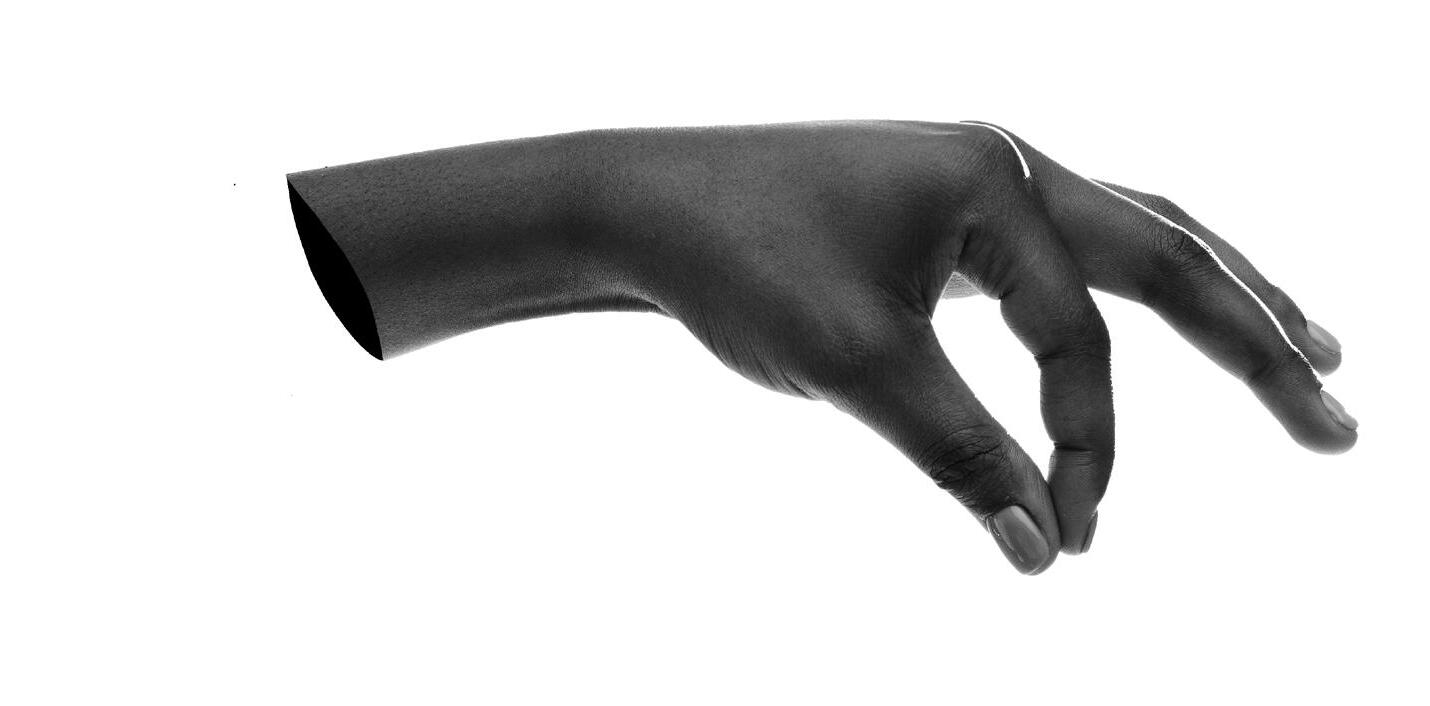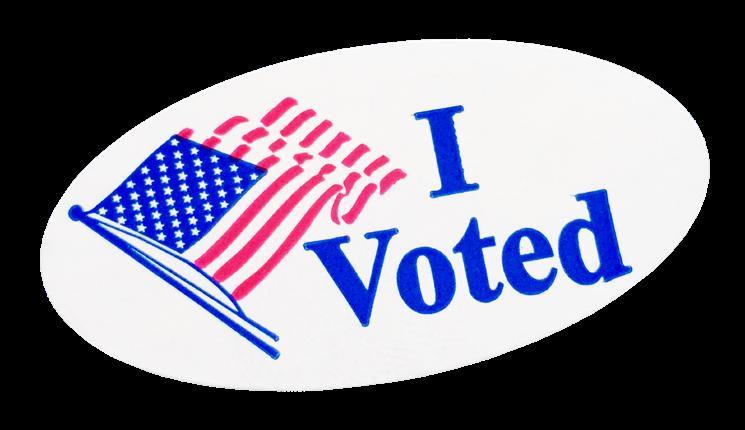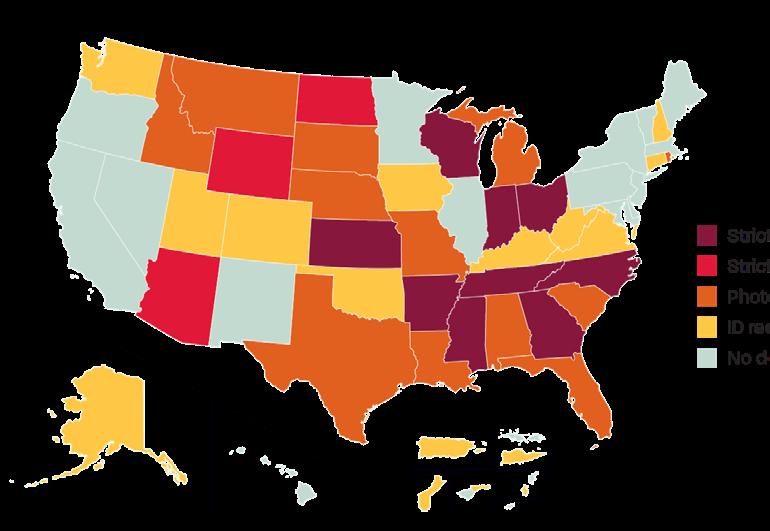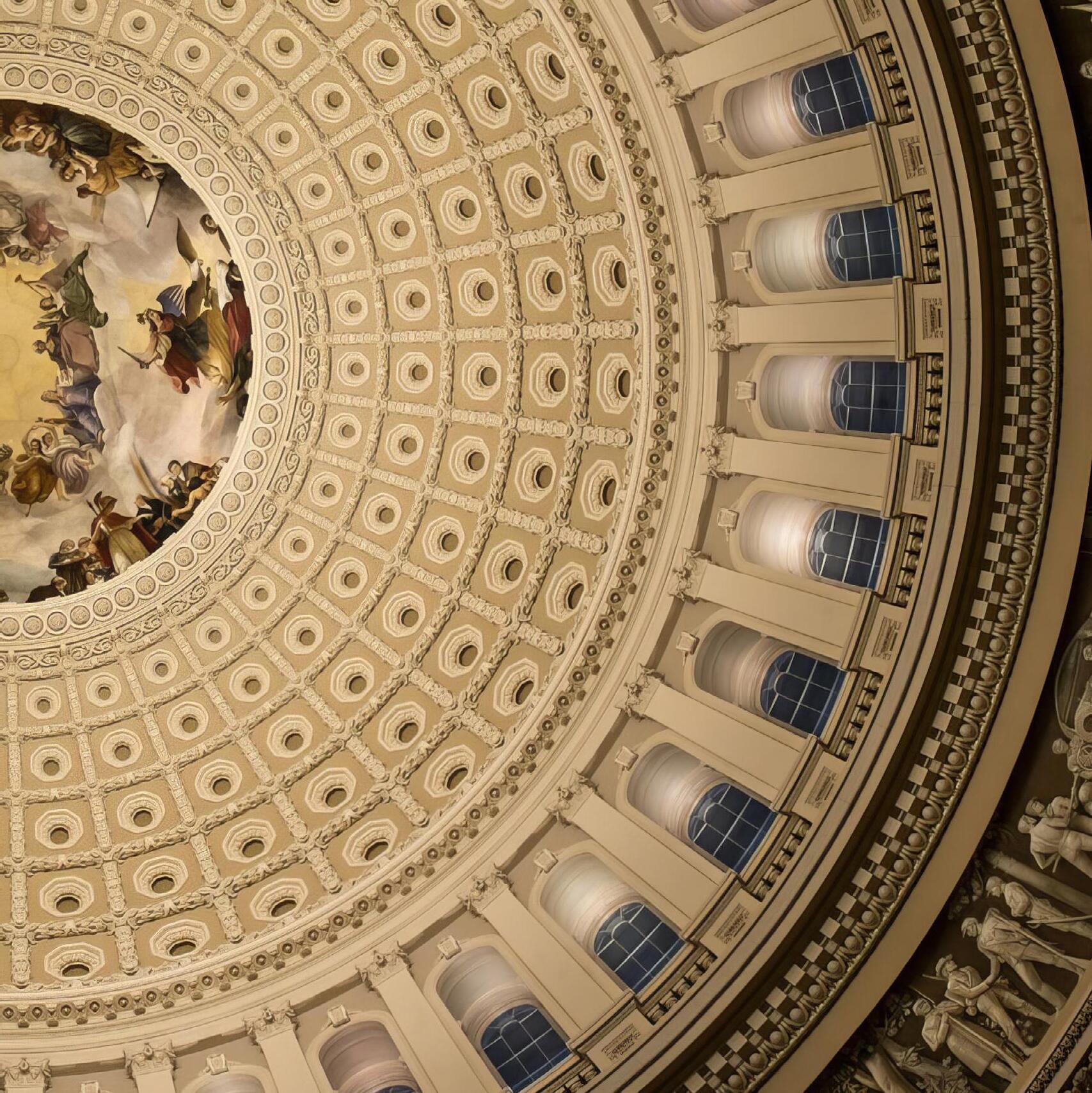






Unshackling the Vote: Restoring Civic Participation for Persons Recently Released from Incarceration : H.R. 4987 aims to safeguard the federal voting rights of individuals upon their release from incarceration. This policy brief explores the implications and importance of H.R. 4987, delving into the benefits for both individuals seeking a fresh start after reintegration and the broader Black community, as well as what is at stake for the 2024 election cycle if legislation of its kind remains unimplemented.
Eliminating Barriers to Reentry for Returning Citizens: A 50 State Examination of Reentry Practices : This case study examines barriers returning citizens encounter, current state and federal reentry practices/legislation, and policy solutions to ensure returning citizens adequately acclimate to their communities.
Voting Rights on Trial: The Future of Redistricting and Representation in the U.S. : This policy brief assesses the current voting rights landscape and provides a contextual overview of the events that have led to the current voting rights crisis and the consequences for Black Americans.
Fact Sheet: A Tale of 10 Black Cities : This fact sheet depicts the power of the Black vote in the
On November 5, 2024, the United States will hold its third presidential election without the full protections of the 1965 Voting Rights Act (VRA). This is due to the 2013 Supreme Court decision in Shelby County v. Holder, which invalidated Section IV of the VRA. Section IV contained the formula used to determine which states and localities were subject to federal oversight (preclearance) before making changes to their voting laws. Since that decision, 45 states have introduced new restrictive voting laws, including measures such as strict voter ID requirements, reductions in early voting, and restrictions on absentee voting, that disproportionately suppress the votes of people of color, low-income individuals, and the elderly.

Election Day: Tuesday, November 5, 2024
Voter Registration: All states have different voter registration deadlines. Some are a month before the election and others are two weeks before the election. Contact your local board of elections and make sure you are aware of the voter registration deadlines in your state.
Early Voting: Any registered voter can vote early (before Election Day). This option is useful for voters who are unable to get to the polls on Election Day. Deadlines for early voting vary. Contact your state board of elections for information about where to go and what is required to vote early. You can also locate this information by visiting www.vote.org/cbcf, scrolling down to the State Elections Center, and selecting your state.”
Absentee Voting: A registered voter who is unable to be in the precinct or designated polling location in their state on Election Day can still vote using an absentee ballot. This ballot can be mailed to voters and some states allow proxy voting (a voting ballot is submitted by others on your behalf). Eligibility for absentee voting varies by state, visit www.vote.org/cbcf, scroll down to the State Elections Center, and select your state.”
Provisional Voting: A voter whose eligibility is in question can cast a provisional ballot. The Help America Vote Act was signed into law in 2002 safeguards this right. Examples of provisional voting include: failing to update your voter registration information by the deadline, showing up at the wrong polling location, and inability to provide required identification.
Election Day Voting: If you plan to vote in person on Election Day, Tuesday, November 5, 2024, ensure you know the exact location of your polling place. You can also locate this information by visiting www.vote.org/cbcf and selecting Polling Place Locator from the menu

Know your polling officer, voting precincts and voting hours.
Meet with your Mayor, Councilperson or Alderman.
FIND AVENUES FOR CIVIC ENGAGEMENT
Participate in canvasing and voter registration drives
• Confirm that you are eligible to vote several weeks before Election Day.
• Be aware of the hours that polls open and close.
• Know where your polling location is and how you will get there.
• Decide before Election Day whether you will vote in the morning, afternoon, or evening, accounting for work, travel, and childcare needs where applicable. Offer to carpool or organize with others if you need transportation.
Volunteer at the polls.
Be aware of the ballot issues in your community.
Serve as an election officer
• Research the options for early voting in your area.
• Become acquainted with the candidates and issues on the ballot. Be sure to research all candidates and issues, not just the presidential candidates or the issues most important to you.
• For more information on facts to know for federal elections, see “ 14 Facts about Voting Elections ” published by the US Election Assistance Commission.
Contact state or local election office for information on procedures specific to your locality. Register a complaint with the U.S. Department of Justice at (800) 253-3931 or voting.section@ysdoj.gov
Voter Suppression is a strategy to influence the outcome of an election by discouraging or preventing people from exercising the right to vote. It is present in a variety of ways, such as:
• Stricter voter ID laws
• Voter roll purges
• Reduced early voting days
• Closure of polling places
• Increased presence of law enforcement or white nationalists at polling places
• Threats of violence and intimidating rhetoric targeting election workers
• Disinformation campaigns spreading false information about voting procedures, election dates, and candidates
• Robocalls and text messages targeting Black voters
• Felon disenfranchisement
• Increased acts of political violence committed by members of the public and linked to an election

As of June 2023, 36 states and counting have enforced voter identification laws. Twenty-one states require a photo ID and 15 states also accept non-photo IDs. The spread of these laws has raised serious concerns among those who see them as unnecessary and harmful to democracy. Critics argue that voter identification laws act as significant barriers, restricting the rightful participation of racial and ethnic minorities, as well as other disadvantaged groups.
The following organizations are dedicated to the inclusion of all citizens in the areas of voting rights.
Black Voters Matter
Black Girls Vote
BlackPAC
Campaign Legal Center
DC Vote
Demos Fair Fight
Florida Rights Restoration Coalition, Inc.
Hip Hop Caucus
Lawyers Committee for Civil Rights Under Law
Leadership Conference on Civil and Human Rights
League of Women Voters
League of Women Voters Education Fund
NAACP Legal Defense Fund
National Coalition on Black Civic Participation
National Election Defense Coalition
Project Vote
Respect My Vote!
Rock the Vote
Southern Poverty Law Center
The American Civil Liberties Union
The Brennan Center for Justice
The Fair Elections Network
The National CAPACD
The Southern Coalition for Social Justice
Transformative Justice Coalition
Vote.org
Voting Rights Alliance
Voting Rights Lab
Voto Latino
When We All Vote

For more information about specific voter registration deadlines in your state or to verify your voter registration information, visit vote411.org .